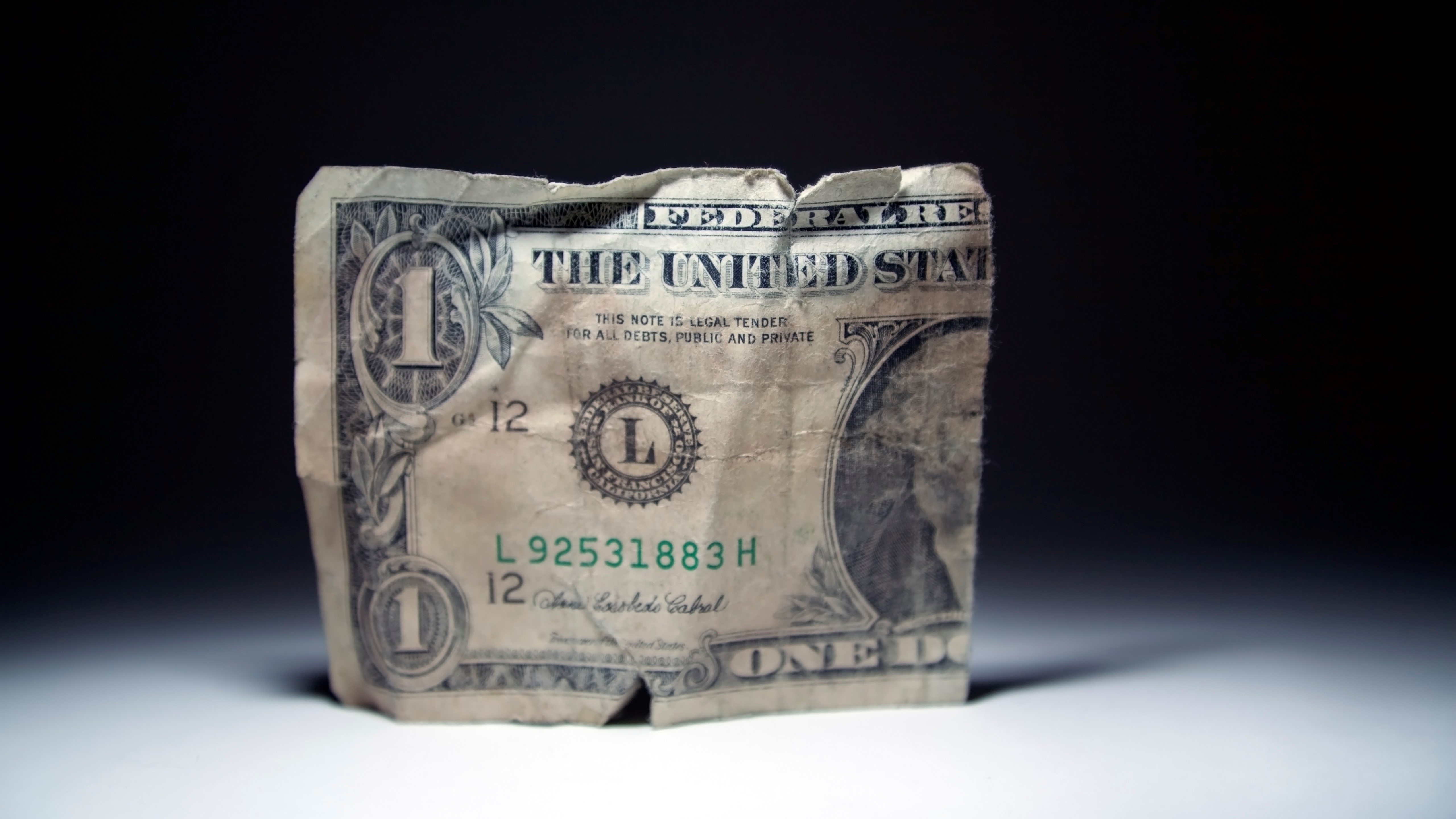Is debt settlement worth it?
Reducing debt without needing to pay it back will always appeal, but are settlement services worth the risk when your credit takes such a hit?

Sign up to receive the latest news, reviews, buying guides and deals direct to your inbox
You are now subscribed
Your newsletter sign-up was successful
If you’ve been struggling with unmanageable debt, the chance to reduce what you owe is always going to appeal. Such an opportunity is what the best debt settlement companies have to offer, yet it’s a path that comes with its own drawbacks, not least in terms of how it impacts credit scores. So is debt settlement worth it, and could there actually be options that are better suited to clearing the biggest of debts?
What is debt settlement?
Debt settlement is the process of negotiating a repayment plan with your creditors to settle your debt for less than the full amount owed. This may be in the form of a reduced lump sum payment, lower monthly repayments, or perhaps a debt discharge. It’s possible to achieve such an outcome yourself, but is usually more readily achieved with the help of a third party, and in particular a service that specializes in settling debt and will negotiate on your behalf.
When you seek help in this way, you choose which debts you want to settle but will be expected to stop paying your original creditors, and instead make payments to the settlement company while they negotiate. The process can take a long time, particularly if there are a lot of creditors to negotiate with, but once a settlement has been reached – and crucially, you agree to it, which you’re under no obligation to do – the company who’s now handling the debt will make the required payment(s) to your creditors. If you have a long-term repayment plan, you’ll be expected to continue paying the company that has helped to settle things on your behalf an agreed amount until the debt is cleared.

What are the risks?
Debt settlement may initially sound like the perfect solution. After all, who wouldn’t want to reduce their debts? Yet unfortunately, it’s not usually that simple, and there are many risks to be aware of before you go down this route.
The first note of caution surrounds the fees involved. Companies engaged in settling debt will usually expect either a flat fee or a percentage charge – which can sometimes be as high as 25% of the resolved debt – so you need to be confident that any settlement will be worth the additional costs involved, and that you’ll have the means to pay the charges. In a similar vein, it’s important to remember that any forgiven debt over $600 is taxable, so even if you’ve been able to reduce the amount you owe, you could still end up owing tax as a result.
There’s also no guarantee that your creditors will agree to settle your debt, and if you’ve been directing your payments to the settlement service rather than your creditors, you’ll likely have fallen further behind on your repayments without any solution on the horizon. Interest would still have been accruing on your debt during that time as well, together with late fees, and that means you may actually owe more than when you started the process – and debt collection may be an unfortunate next step to repaying your creditors.
Is debt settlement bad for your credit?
The potential impact on your credit score is arguably one of the biggest risks of all, and something that you need to carefully consider before you go down the settlement route.
Sign up to receive the latest news, reviews, buying guides and deals direct to your inbox
The reason that settlement firms ask you to stop paying your creditors is that an account is usually required to be in delinquent status before settling, and a successful negotiation is less likely with someone who can still pay their bills. But, if you don’t pay your bills, your credit score will be impacted – and if the negotiation process takes a long time, your score could plummet. This means you’re less likely to be accepted for credit in the future, and could also be a particular concern if the creditor won’t settle, and you need to look for alternative ways to consolidate your debt instead.
Even if your creditors agree to settle, any accounts marked as such on credit reports will negatively impact your score, as you haven’t fulfilled your original credit agreement. It’s not uncommon for credit scores to decline by 100 points or more for each settled account, and it can take seven years for those accounts to leave your report. Seeking the assistance of a credit repair service may be able to help things slightly once your debt is settled, but even then, it can take a long time for your score to recover.

What are the alternatives to debt settlement?
Given the potential drawbacks outlined, it’s always wise to consider alternative options first. One of these is consolidating your various credit commitments into one loan, either through specialized debt consolidation companies, or by looking for the best personal loans to arrange things yourself. The end result should be that you have a single monthly repayment to deal with which in itself can make things more manageable, and ideally you’ll have a lower interest rate, making repayments lower as well. It will almost always pay to make sure you know how to consolidate debt, and to learn more about the differences between consolidating and settling.
If you’ve got credit card debt, opting for a balance transfer credit card could be an option, thereby giving you a set period of time in which to repay the balance without interest compounding your difficulties. Or, if you’re a homeowner, you may also want to consider refinancing using the best refinance mortgage companies – doing so can enable you to release some of the equity in your property that can be used to pay down your debt – or by using a home equity loan if you don’t wish to switch away from your current mortgage deal.
Of course, none of these actually reduce the amount of debt you owe, and will often only be an option if your credit rating is good enough to allow. Importantly, however, they are solutions that will have less of a long-term impact on your credit score and your finances as a whole than settlement, so should always be explored first.
Is debt settlement worth it?
With all of this in mind, the overriding takeaway should be that debt settlement will almost always be a method of last resort - this is because the impact on credit scores is usually severe, the fees are often high, and there’s no guarantee of reaching an agreement with creditors that will see your debt drastically reduce.
That said, if a poor credit rating means consolidation and other loan options aren’t an option, there is a possibility that debt settlement may be able to help. However, making sure fees won’t negate any benefit that might be made is a must, and the potential damage to your credit rating should never be underplayed.
Leanne has been writing professionally for well over a decade, with the majority of that time spent at a financial publishing company where she wrote countless articles across the personal finance space. Now freelancing, she still predominantly writes about finance, with bylines in both national and trade publications. In her spare time Leanne likes to read, catch up on Netflix and sleep, though her toddler rarely allows such things.

